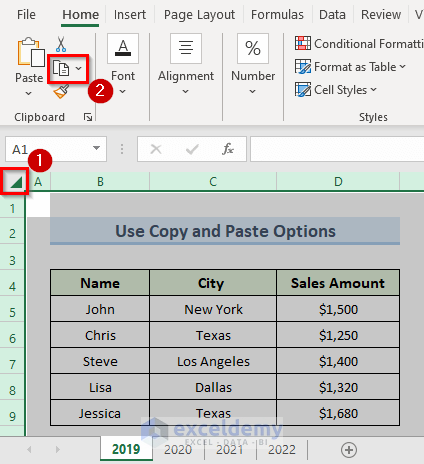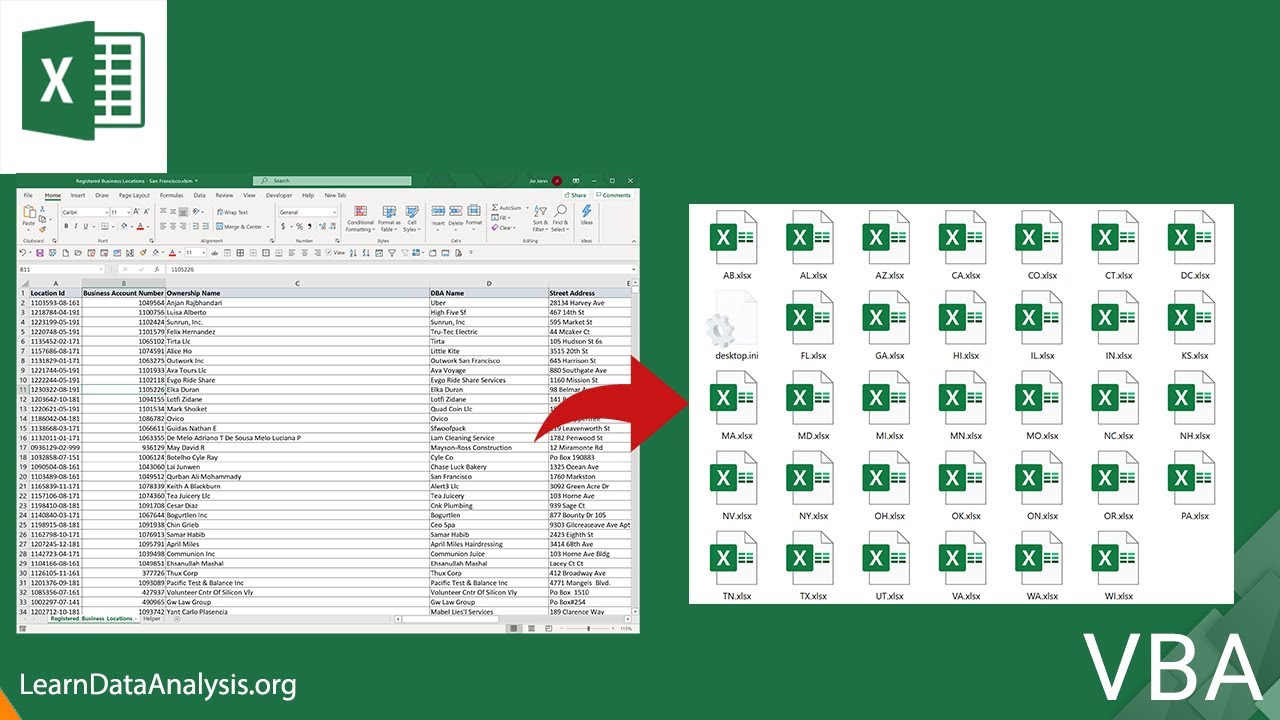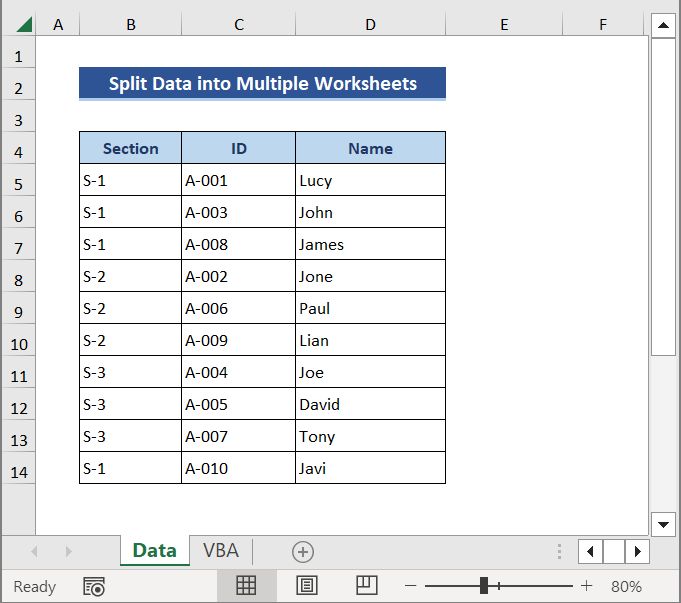Split Stata Data into Multiple Excel Sheets Easily

Dealing with large datasets in Stata can often be challenging, especially when you need to organize and present the data for different groups, departments, or time periods. A common requirement is to export Stata data into multiple Excel sheets, each containing a subset of the data based on some criteria. This guide will walk you through the process of splitting Stata data into multiple Excel sheets seamlessly.
Why Split Stata Data into Multiple Excel Sheets?

Before diving into the how-to, let's explore why you might want to do this:
- Organizational Clarity: Each Excel sheet can represent a different group, time period, or department, making data analysis and presentation more straightforward.
- Collaboration: Sharing data becomes easier when different parts of the dataset are separated into sheets, reducing confusion and overlap.
- Reporting: Presenting summarized data in different sheets can help in generating department-specific reports without manipulating the original dataset.
Step-by-Step Guide to Split Stata Data

Here's how you can split your Stata dataset into multiple Excel sheets:
1. Prepare Your Data

First, ensure your data is ready for splitting:
- Open your dataset in Stata.
- Check that the variable you’ll use to split the data is correctly formatted.
📌 Note: It's always beneficial to clean your data before exporting it to ensure accuracy and consistency.
2. Use Stata Commands

Stata has several commands that can help you export data into Excel:
use your_data.dta
Split by a categorical variable, e.g., 'department'
levelsof department, local(depts)
Loop through each unique value in 'department'
foreach dept in `depts' {
preserve
keep if department == "`dept'"
export excel using "data_split.xlsx", sheet("`dept'", replace) firstrow(var)
restore
}
This code does the following:
- Loads the dataset.
- Identifies unique values of the 'department' variable.
- Loops through each unique value.
- Preserves the dataset, filters for the current department, exports it to an Excel sheet, and then restores the original dataset.
3. Formatting Your Excel Output

You might need to adjust the formatting of your exported data:
- Set the first row as headers by using the `firstrow(var)` option in the `export excel` command.
- If needed, format the dates, numbers, or text within Stata before exporting to ensure the Excel file looks the way you want.
4. Advanced Tips for Efficient Splitting

Here are some advanced tips for better efficiency:
- Use `bysort:` If you need to perform calculations by group before exporting, consider using `bysort` to streamline your process.
- Merge Sheets: If splitting by more than one variable, you can export each combination to a separate Excel file or use Excel's macro functions to merge sheets after exporting.
- Use `putexcel`: For more control over cell positioning and formatting, consider the `putexcel` command in Stata. Though it's more complex, it gives you fine-tuned control.
With the data split and exported into separate sheets, you've completed the primary task. Here are some final thoughts:
Final Thoughts

Splitting Stata data into multiple Excel sheets is an invaluable skill for data analysts. It allows for organized data management, easier collaboration, and streamlined reporting. By following the steps outlined above, you can handle large datasets efficiently. Remember, the key is in understanding your data structure and having clear goals for how the data should be split.
How can I handle very large datasets in Stata?

+
Stata has options like memory management, using larger workspaces, or breaking your data into manageable chunks. Consider upgrading to Stata/MP for parallel processing capabilities.
What should I do if Stata encounters errors during exporting?

+
Check for string variables with lengths over 244 characters or dates not in proper format. You can use commands like compress to reduce variable lengths or manually adjust dates.
Can I split data based on multiple variables?

+
Absolutely. You can nest loops or use combinations of variables to create unique sheets for each combination. Adjust the foreach loop to handle more than one variable at a time.



